Politics
Pennsylvania Democrat Jack Stollsteimer enters 2024 race for attorney general
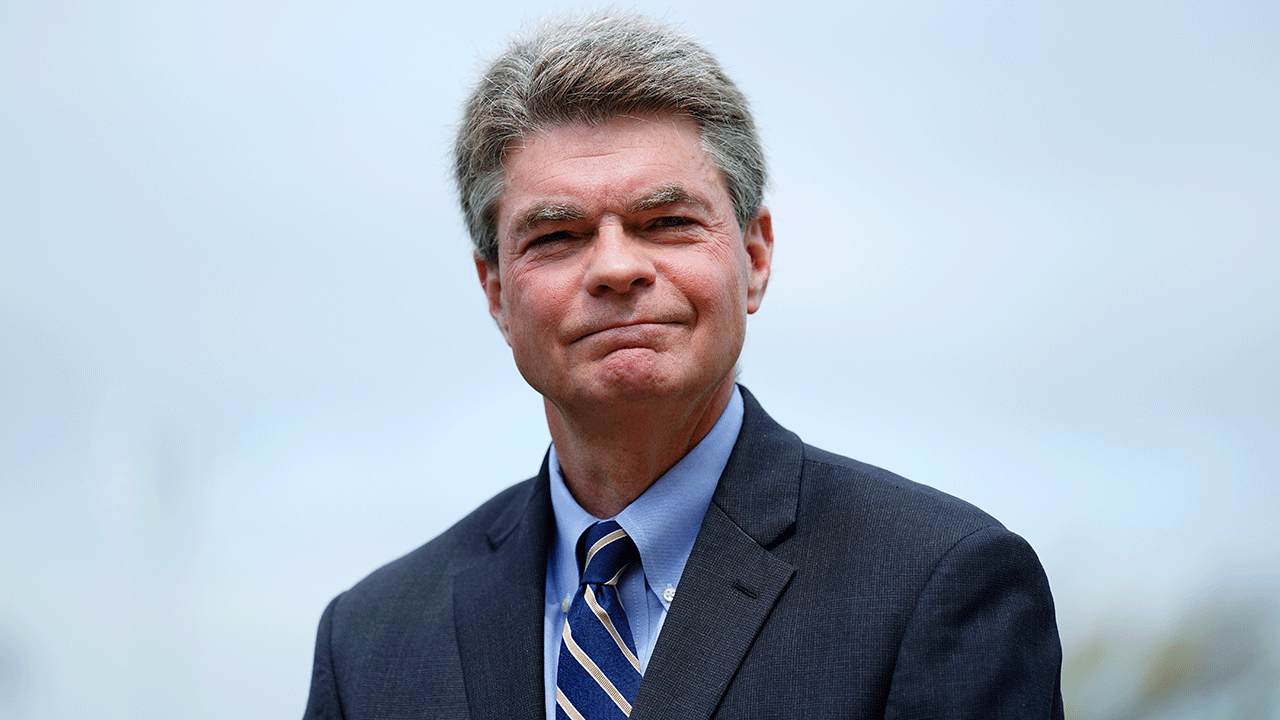
Jack Stollsteimer, the top prosecutor in heavily populated Delaware County, will run for Pennsylvania attorney general in 2024, he announced Monday, seeking an office that played a critical role in court defending Joe Biden’s 2020 victory in the presidential battleground.
Stollsteimer joins a Democratic primary field that is already four-deep in which he will be the only elected prosecutor. However, his competition for the Democratic nomination features veterans of the campaign trail and the courtroom.
In his campaign for attorney general, Stollsteimer will lean heavily on his experience as the twice-elected district attorney of Delaware County, Pennsylvania’s fifth-most populous county sitting between Philadelphia and Delaware.
SIX MEN BUSTED IN PENNSYLVANIA DURING UNDERCOVER CHILD SEX STING, AUTHORITIES SAY
Delaware County, Pa., District Attorney Jack Stollsteimer looks on during a news conference outside Academy Park High School, on April 26, 2022, in Sharon Hill, Pa. Stollsteimer, a Democrat, announced his candidacy for Pennsylvania attorney general on Nov. 27, 2023. (AP Photo/Matt Rourke, File)
FETTERMAN HOLDS CAMPAIGN EVENT WITH ANOTHER SOROS-BACKED DA AMID INCREASED SCRUTINY ON CRIME RECORD
“I am uniquely qualified because I do that work every single day in the fifth-largest county in Pennsylvania,” Stollsteimer said in an interview.
Stollsteimer, 60, has been a federal prosecutor in Philadelphia, a top official in the state Treasury Department, the state-appointed safety advocate in Philadelphia’s schools and, before college, a senior aide to state House Democrats. A Philadelphia native, Stollsteimer earned his law degree at Temple University.
The attorney general’s office, the state’s top law enforcement office, has a budget of about $140 million annually and plays a prominent role in arresting drug traffickers, fighting gun trafficking, defending state laws in court and protecting consumers from predatory practices.
The office also defended the integrity of Pennsylvania’s 2020 presidential election against repeated attempts to overturn it in state and federal courts by Donald Trump’s campaign and Republican allies.
Perhaps Stollsteimer’s most-touted achievement is fighting gun violence in the impoverished city of Chester, using a partnership based on a model used successfully elsewhere to connect offenders or known criminals with job training, school or community-building programs.
His office says gun homicides are down by 68% since 2020 and there have been 65% fewer shootings.
As Philadelphia’s state-appointed safe schools advocate, Stollsteimer clashed with district officials and the state Department of Education over what he described as an unwillingness to report violent incidents.
“Things have gotten worse, not better,” he told The Philadelphia Inquirer in 2011. “You can’t address the problem until you’re honest about it, and the district is not honest about it.”
Stollsteimer mounted a brief campaign for attorney general in 2015 but dropped out before the primary.
In 2019, he won his race for district attorney, becoming the first Democrat to hold the office in Delaware County, once a Republican bastion that Democrats now control. Stollsteimer won reelection earlier this month by 22 percentage points, drawing support from unions for building trades and police.
PENNSYLVANIA WOMAN CHARGED WITH ‘BRANDING,’ SEXUALLY ABUSING AND USING FOUR CHILDREN TO GET DRUGS: DA
Stollsteimer had a busy four years in office. In perhaps the highest-profile case, his office prosecuted three police officers for responding to a shooting outside a high school football game by opening fire at a car, killing an 8-year-old girl, Fanta Bility, and wounding two others.
Stollsteimer is now the fifth Democrat to announce his candidacy, after state Rep. Jared Solomon of Philadelphia, former state Auditor General Eugene DePasquale, former federal prosecutor Joe Kahn and Keir Bradford-Grey, the former head of Philadelphia’s and Montgomery County’s public defense lawyers.
On the Republican side, York County District Attorney Dave Sunday and former federal prosecutor Katayoun Copeland have announced their candidacies.
Candidates must file paperwork by Feb. 13 to appear on the April 23 primary ballot.
Attorney General Michelle Henry does not plan to run to keep the office.

Politics
NAACP urges Black consumers to steer buying power away from companies that have ditched DEI

The NAACP is calling on Black consumers to direct their nearly $2 trillion in buying power toward companies that have kept their commitments to diversity, equity and inclusion (DEI) initiatives.
In a “Black Consumer Advisory” memo released Saturday, the NAACP said that Black consumers have purchasing power exceeding $1.8 trillion annually. The memo included a “Call To Action” for these consumers to begin steering that power away from specific companies that have begun cutting back on DEI-related positions, programs, investments and hiring practices. According to the group, such rollbacks “reinforce historical barriers to progress under the guise of protecting ‘meritocracy,’” which they said was “a concept often used to justify exclusion.”
Some of the companies the group is urging Black consumers to steer clear of are listed on its website and include Walmart, Meta and McDonald’s. Others were reportedly referenced in a separate buying guide provided exclusively to The Associated Press, which listed Lowe’s, Amazon, Tractor Supply and Target as others to avoid.
Delta Air Lines, Apple and Ben & Jerry’s are some of the companies the NAACP listed on its website as having “recommitted to DEI.” Meanwhile, e.l.f. Cosmetics, JPMorgan Chase & Co. and Costco are other companies the NAACP is suggesting are wise for consumers to support because they have kept strong to their DEI commitments, according to The Associated Press.
WALMART FACING BACKLASH OVER DEI POLICY REVERSAL AS SHAREHOLDERS AND DEM OFFICIALS URGE THEM TO RECONSIDER
The effort to steer consumers away from these companies comes amid pressure from the Trump administration and GOP officials to peel back DEI commitments in both the public and private sectors. In addition to an executive order from President Donald Trump calling for an end to “Illegal DEI and DEIA policies,” which he says violate currently established civil rights law, newly appointed Attorney General Pam Bondi sent a memo earlier this month to all Justice Department employees, indicating the agency would be investigating, eliminating and penalizing DEI preferences, mandates, policies and programs occurring in the private sector and at educational institutions.
Missouri filed a lawsuit earlier this month challenging Starbucks’ DEI policies. (Fox News Digital)
Recently, Federal Communications Commission Chairman Brendan Carr ordered an investigation into Comcast’s DEI practices, while the state of Missouri filed a lawsuit earlier this month challenging Starbucks’ DEI policies, as well.
OBAMA LIBRARY, BEGUN WITH LOFTY DEI GOALS, NOW PLAGUED BY $40M RACIALLY CHARGED SUIT, BALLOONING COSTS
“The NAACP recognizes that the rollback of DEI initiatives is a direct attack on Black economic progress, civil rights, and the principles of equity and fairness,” the Saturday consumer advisory memo stated. “These actions are part of a broader effort to reverse gains made in civil rights and social justice. We urge Black consumers to remain vigilant, informed, and intentional in their economic decisions, using their collective power to demand accountability from corporations and institutions.”

The consumer guidance provided by the NAACP will reportedly be amended as companies make changes to their DEI commitments, according to The Associated Press, and the group is currently in discussions with executives at companies that have reversed their DEI pledges.
Fox News Digital reached out to the NAACP for comment and to receive a full list of companies it was urging Black consumers to steer cleer of but did not receive a response by publication time.
“We have the power to choose where we spend our money,” NAACP CEO and President Derrick Johnson said in a statement posted on X. “I am confident that this framework will support our community as we make difficult decisions on where to spend our hard-earned money.”
Politics
Opinion: Extend Trump's 2017 tax cuts to promote growth, but cut spending too

America approaches a critical juncture. Many provisions of the Tax Cuts and Jobs Act of 2017 are set to expire this year. Congress could let them lapse, but that would mean a large, economically damaging tax hike for most Americans. Lawmakers could make all the cuts permanent, but without revenue offsets that would deepen the nation’s disastrous debt load.
There is a more targeted and responsible way to deal with this fiscal dilemma.
It’s a common, politically fueled mistake to talk about cutting taxes without also talking about our fiscal situation. We’re $37 trillion in debt — going on $59 trillion in a decade — and after years of alarming growth, the annual spending deficit is roughly $2 trillion. We also must grapple with the looming entitlement crisis, and interest payments on government debt are the fastest-growing budget item. Times are changing, making fiscal responsibility more crucial than ever.
While the upfront cost of the tax cuts back in 2017 was $1.5 trillion, on paper, to make them permanent could cost $4.6 trillion. The actual cost should be cheaper, as projections underestimate a likely increase in taxable income, investment and growth. But we shouldn’t deny that there is a significant cost.
There are also plenty of lessons to be learned from the 2017 reform. The first is that not all tax cuts are equally pro-growth. As such, we should make permanent only the most pro-growth provisions and allow others to expire or be extended on a short-term basis.
To the extent that the 2017 cuts spurred growth and higher revenue, that was mostly the product of the permanent reduction of the corporate tax rate from 35% to 21%. This provided businesses with long-term certainty, encouraging investment, capital formation and wage growth. Unlike temporary tax cuts, which lead to short-term boosts but create uncertainty, a permanent lower rate lets firms plan, expand operations and increase productivity.
Paired with the soon-to-expire provision that allows firms to fully expense their investments, the permanent corporate cuts attracted more domestic and foreign investment, leading to higher economic output and job creation over time.
A new Hoover Institution study reveals that businesses are more responsive to corporate tax changes than previously thought. Analyzing the 2017 cuts, Kevin Hassett (the National Economic Council’s new director), Jon Hartley and Josh Rauh found that a one-percentage-point reduction in the cost of capital can boost investment rates by up to 2.4%, surpassing earlier estimates.
Congress should hence prioritize making full expensing of capital investment permanent. It could also extend it to investments in structures.
Similarly, the cuts to individuals’ tax rates should be made permanent. This provision encourages work, savings and investments, especially for high earners, fostering a more dynamic and resilient economy. Recent research by Rauh and Ryan Shyu on California tax increases shows how much more sensitive high-income filers are to rate changes than most research generally assumes. The economists looked at taxpayers’ responses after Proposition 30 increased marginal tax rates by up to three percentage points for high-income households. An extra 0.8% of these taxpayers left the state as a result, and those who stayed reduced taxable income, eroding up to 61% of expected revenue within two years. This sensitivity to high tax rates and our progressive federal tax code mean that letting individual tax cuts expire will have a bigger impact than projected, and extending them will have a smaller deficit impact than most fear.
While the economics are straightforward, congressional rules are not. Budget reconciliation is a special process allowing Congress to pass tax, spending and debt-related bills with a simple Senate majority, bypassing the filibuster. But it’s limited to budgetary matters by the Byrd Rule and cannot increase the deficit beyond a 10-year window without offsets.
That leads us to the second lesson: Legislators should make permanent the 2017 measure’s revenue-raising provisions and cut some spending as well.
Extending the limits put on the state and local tax (SALT) deduction and mortgage interest deduction, and the removal of the personal exemption (a $4,050-per-household-member exclusion from taxable income) would generate significant revenue — more than covering the cost of the most growth-oriented tax cuts. Congress also needs to remove other tax breaks such as the corporate SALT deduction, energy subsidies and incentives for stadiums, just to name a few, and cut other spending to make it work.
Finally, all the other, costlier and less pro-growth (though popular) provisions should be extended on a temporary basis. These include the Child Tax Credit expansion, the larger standard deduction and alternative minimum tax reductions, which could be set to expire in a few years instead of being made permanent. That would help manage deficits while giving time for Congress to debate each one.
A similar approach could apply to Trump’s proposed new tax breaks on tips, overtime pay and Social Security benefits, which aren’t pro-growth and could cost $5 trillion over a decade.
A one-vote Republican House majority makes the process of extending the tax cuts even through reconciliation challenging. Setting strict priorities and guidelines should help get the job done. However, the key to success will be supporting growth of the economy without ballooning the deficit and the debt.
Veronique de Rugy is a senior research fellow at the Mercatus Center at George Mason University.
Politics
Some Dems already turning on Hogg two weeks into DNC vice chair gig: report
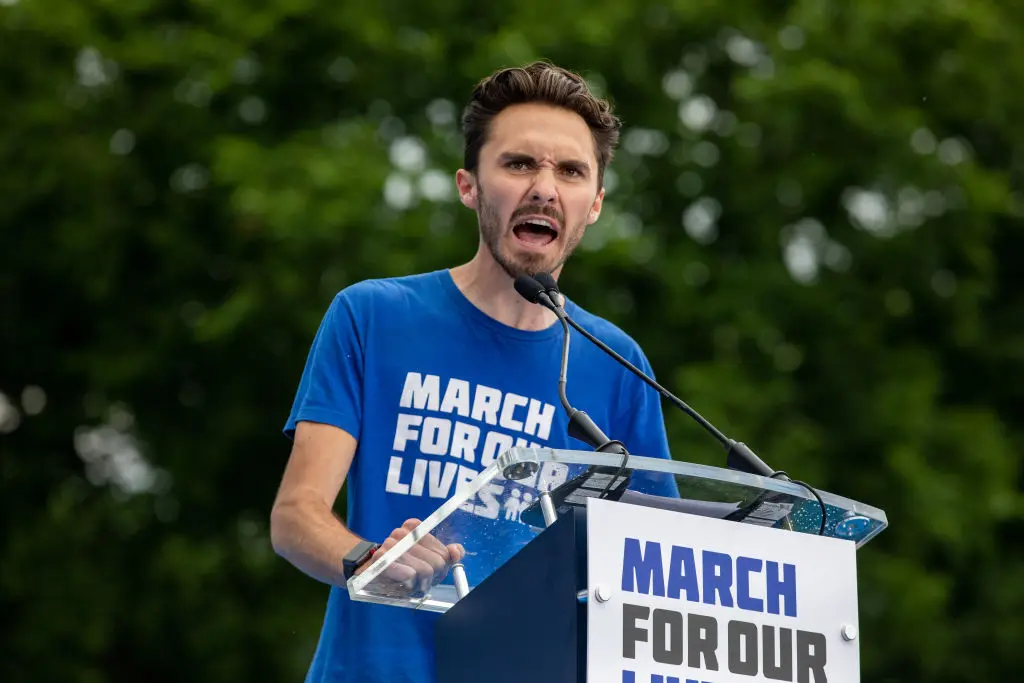
Some Democratic insiders are already expressing concerns over newly elected Democratic National Committee (DNC) Vice Chair David Hogg just two weeks into his tenure in leadership.
Hogg has already ruffled some feathers within the DNC for using the committee’s contact list to solicit donations for his own political action committee (PAC), Leaders We Deserve, according to a report from the New York Post.
“David Hogg here: I was just elected DNC Vice Chair! This is a huge win for our movement to make the Democratic Party more reflective of our base: youthful, energetic, and ready to win,” reads one of eight texts, which include solicitation links to “Leaders We Deserve,” sent out to a DNC database of phone numbers, according to the report.
NEW DNC VICE CHAIR SETS SOCIAL MEDIA ABLAZE AFTER ‘RADICAL’ POSTS EXPOSED: ‘LEARNED ABSOLUTELY NOTHING’
Gun violence survivor and activist David Hogg speaks at the March for our Lives rally against gun violence at the National Mall in Washington, D.C. on June 11, 2022. (Amanda Andrade-Rhoades/For The Washington Post via Getty Images)
The texts aren’t sitting well with some DNC insiders, who believe the committee’s vast database of numbers and donors should be used to help the future of the party, not a member’s individual PAC.
“David Hogg – talk about living up to your name. A trough of DNC dollars all for him and he doesn’t seem to give an oink,” one top Democrat told the Post.
Hogg, who first came to prominence as a survivor of the 2018 Parkland, Florida, school shooting, founded the PAC in August 2023, which he said aims to help young progressives get elected to Congress and state legislatures across the country.
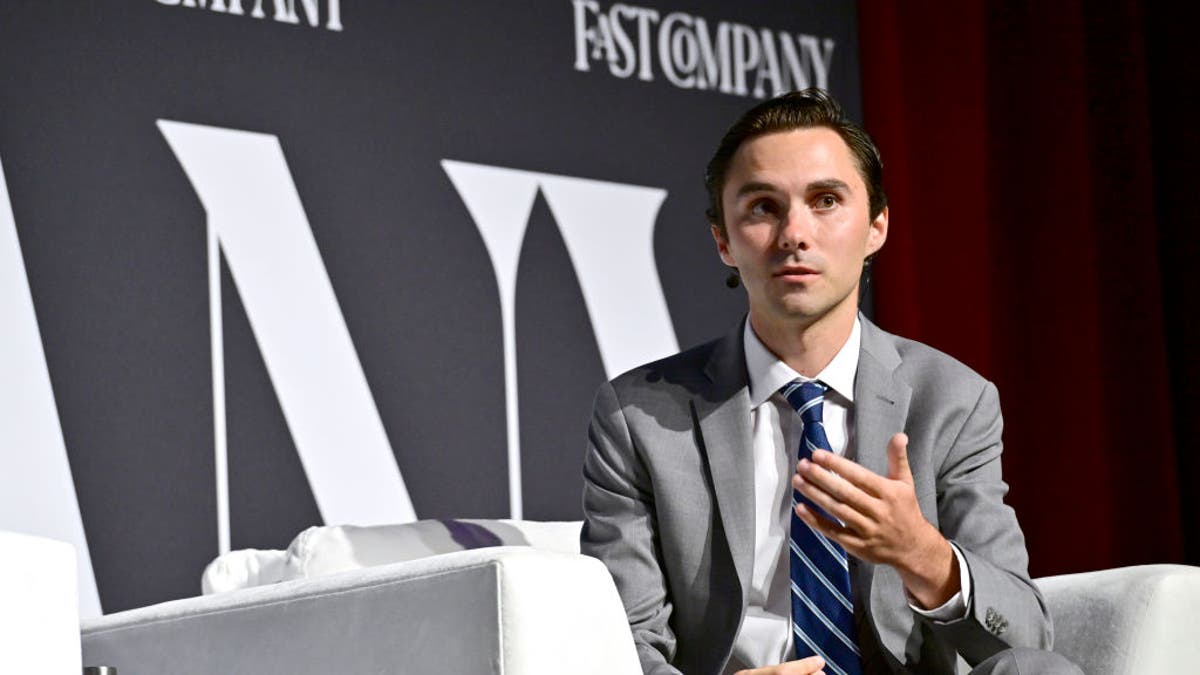
David Hogg speaks onstage during the Fast Company Innovation Festival at BMCC Tribeca PAC on Sept. 17, 2024, in New York City. (Eugene Gologursky/Getty Images for Fast Company)
NEW DNC VICE CHAIR PREVIOUSLY CALLED FOR ICE TO BE ABOLISHED
The now 24-year-old DNC vice chair also pockets a salary of over $100,000, the report notes, having last taken a $20,000 salary payment in December, according to the most recent public data.
While Hogg’s personal fundraising for his PAC does not break any rules, some within the party have taken exception to the young activist’s use of DNC resources.
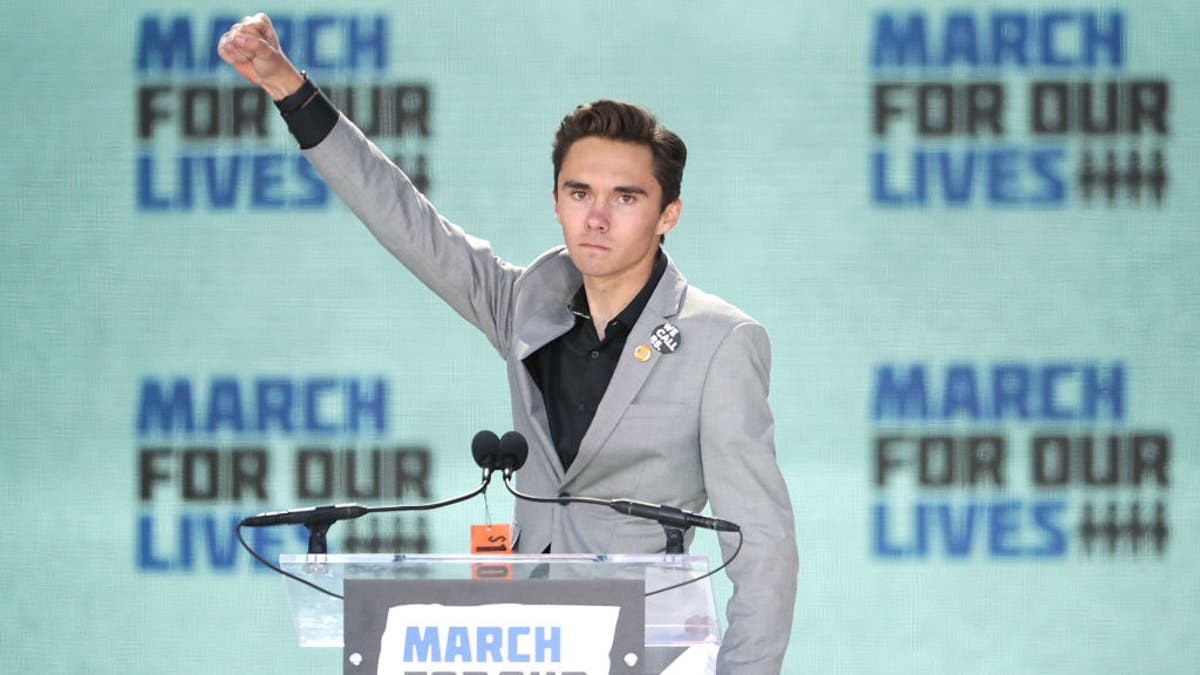
David Hogg addresses the March for Our Lives rally on March 24, 2018, in Washington, D.C. (Chip Somodevilla/Getty Images)
“It’s especially important for all Democratic national officials to focus on raising support for the party and not using their position to raise money for themselves or their personal political PACS,” a second Democratic Party official told the Post. “It’s a stunning lack of judgment that is concerning to many people.”
The DNC did not immediately respond to a Fox News Digital request for comment.
-

 World1 week ago
World1 week agoCyprus jails Syrian man over death of young girl on migrant boat
-

 Politics1 week ago
Politics1 week agoHegseth to look into 'what went wrong' in Afghanistan and pledges accountability, slams diversity motto
-

 Culture1 week ago
Culture1 week agoOne last MLB free agent for every team: Finding new homes for 30 available players
-
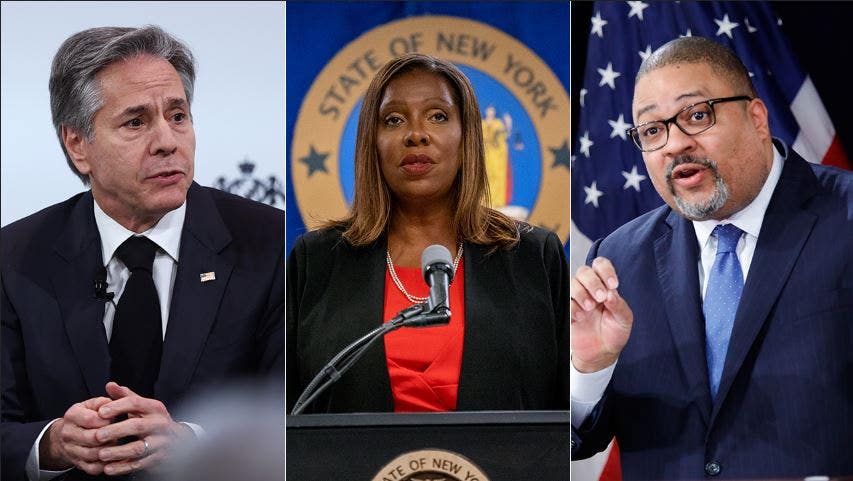
 Politics1 week ago
Politics1 week agoTrump removes Antony Blinken, Letitia James, Alvin Bragg's security clearances among others
-

 World1 week ago
World1 week agoIsraeli air strike kills 6 in eastern Lebanon amid fragile ceasefire
-

 News1 week ago
News1 week agoTrump says he is revoking Biden's security clearances
-

 News7 days ago
News7 days agoMotley Crue lead singer Vince Neil's plane rams into parked jet at Arizona's Scottsdale Airport – The Times of India
-

 Politics1 week ago
Politics1 week ago‘Put down the bong’: Senator smokes UK prime minister on Senate floor













